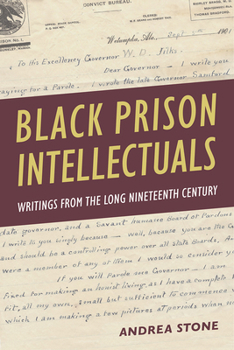Black Prison Intellectuals: Writings from the Long Nineteenth Century
How early Black prison writing shaped Black intellectual movements
In
this book, Andrea Stone recovers critical, understudied writings from
early archives to call into question the idea that the Black prison
intellectual movement began in the twentieth century. In fact, nearly
two centuries before Angela Davis and Eldridge Cleaver, Black prisoners
were serving as thought leaders and contributing to political movements.
By illuminating their pathbreaking voices, Stone shows that prison
writing from this era was a foundational part of Black American
intellectualism.
Grounding her work in a history of
the disproportionately high incarceration of Black Americans, Stone
traces the arc of Black prison writing from 1795 to 1901. She analyzes
gallows literature, court records, newspaper coverage, and parole
request letters, arguing that parole requests represent an undervalued,
vital literary genre. Most of the writers featured in this book were
effectively treated as enemies of the state, leading Stone to a question
that continues to resonate in America today: what is the distinction
between criminal and enemy, and how are those categories intertwined
with Blackness in the United States?
Black Prison Intellectuals
sheds light on the roots of issues like structural racism and mass
incarceration. Looking at an important literary tradition that
contributed to the Black American intellectual movement, this book helps
readers better understand the present as a moment in the long journey
toward a racially just society.
Publication
of this work made possible by a Sustaining the Humanities through the
American Rescue Plan grant from the National Endowment for the
Humanities.





